“My best experience as a leader was developing and running one of the world’s leading M.Sc. in Pallative Care […]”
Learn more about Jonathan Koffman’s experience as a leader in Palliative Care in this video!
Leadership Day 13th May 2020 – Join us at the pre-conference session of the EAPC-Congress
We are delighted to announce our next pre-conference session at May’s EAPC-Congress about leadership in palliative care on
Wednesday, 13th May 2020 from 3:00 – 6:00 pm in the Astoria Palace Hotel, Via Montepellegrino 62, 90142 Palermo, Italy.
The open workshop on the topic “Sustaining Leadership skills and Strategies in Palliative Care and End of Life Care (EUPCA and LDI)” will be chaired by Raymond Voltz, Germany and Frank D. Ferris, United States.
The session will start with a keynote presentation on approaches to sustaining leadership skills and strategies. Then, selected Alumni from the EUPCA and LDI leadership courses will illustrate their personal development, how they sustain their leadership skills, and the impact of their leadership projects.
Join the discussion about these important issues! No advance registration required, all interested persons are welcome.
Frank D. Ferris about Leadership in Palliative Care
Prof. Dr. Sheila Payne about Leadership in Palliative Care
European Palliative Care Academy 2019-21: 1st Course Week started in Cologne
We were very happy to welcome the Palliative Care experts of the fourth cohort of EUPCA at the University Hospital Cologne/Germany on Monday 23th September. We started the new generation of EUPCA with experts come from 13 European countries and for the first time from three Non-European countries: Bangladesh, Iran and New-Zealand. These experts from seven different professions are being trained in leadership skills during the next 1.5 years.
Aim of this unique further education course is to prepare specialists in palliative care for prospective leadership tasks in their professional lives. The European Palliative Care Academy focuses on Personal Development, Project Management, Teamwork, Research Methods and Advocacy and supports participants to successfully implement their personal project in their region or institution.
During the first course week in Cologne all modules where introduced and the participants achieved skills primary in Project Management, tutored by Prof. Dr Raymond Voltz and Dr Christiane Kuch from Germany and in Personal Development, tutored by Prof. Dr Daniela Mosoiu and Malina Dumitrescu from Romania .
The group turned out to be a great mix from different countries, professions and backgrounds which made lively group sessions and interesting discussions possible.
We look back on a successful week and would like to thank all participants, lecturers and others involved!
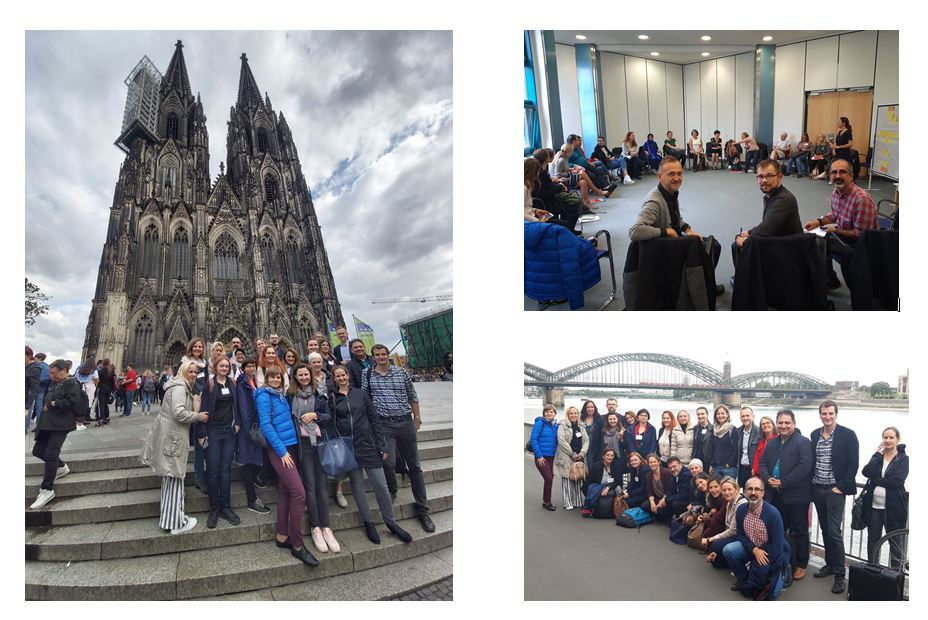
EUPCA student chosen as moderator of an international conference on palliative care
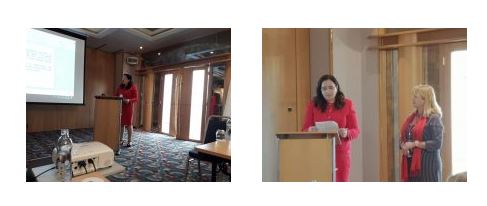
European Palliative Care Academy 2017-2019: 4th Course Week in Brasov, Romania
At the beginning of May 2019, Brasov hosted the fourth course of the European Palliative Care Academy. The 20 participants from 14 countries, with a wide range of professional qualifications and experiences in developing palliative care, attended the last leadership module before their graduation as the third generation of EUPCA leaders.
After completing the previous modules on Project Management at the University Hospital in Cologne, Research Methods at King’s College in London and the Teamwork module at the Hospice and Nicolaus Copernicus University in Gdansk, in Brasov the participants became familiar with the concept of advocacy. The module enabled the future leaders to understand the cycle of advocacy and specific techniques that would help them in advancing palliative care in their countries and palliative care settings. The sessions were structured so as to bring theoretical aspects and steps in the strategic planning cycle together with practical exercises that participants would apply in their specific advocacy situations. Other topics in the field of advocacy were targeted at developing abilities to analyzing laws and policies and writing position papers or briefing notes, preparing face-to-face meetings with authorities and decision-makers. A special chapter was dedicated to increasing the future leaders’ capacity to deal with the media and understand its manifold facets that can be valued in promoting palliative care to the public. Participants learned to draft press releases and to prepare successful interviews for various types of media; a special share was dedicated to understanding and dealing with modern social media. As a practical exercise, leaders were supported to prepare, record and analyze a short interview.
It became a tradition for all participants to put in practice the interview abilities acquired and give short motivational interviews at the end of the EUPCA leadership course. This was a practical exercise that brought both excitement and satisfaction for successfully speaking in front of cameras and microphones. The testimonies recorded witness the participants’ growth as leaders of a new generation of palliative care advocates.
The module on Personal Development, conceived based on the transformational leadership theory, has been a key area in supporting the participants throughout the course to grow as authentic leaders. During this module the topics presented focused on the Leadership journey and the 5 stages and practices in the leadership journey and the Leadership Practice Inventory (LPI). Participants were guided to explore their preferences on how they perceive the world around and how they make decisions, by critically analyzing the results of their Myers-Briggs Type Indicator (MBTI) questionnaire. The final session was a review and reflection on their leadership journey and personal growth over the past 1,5 years or the EUPCA course.
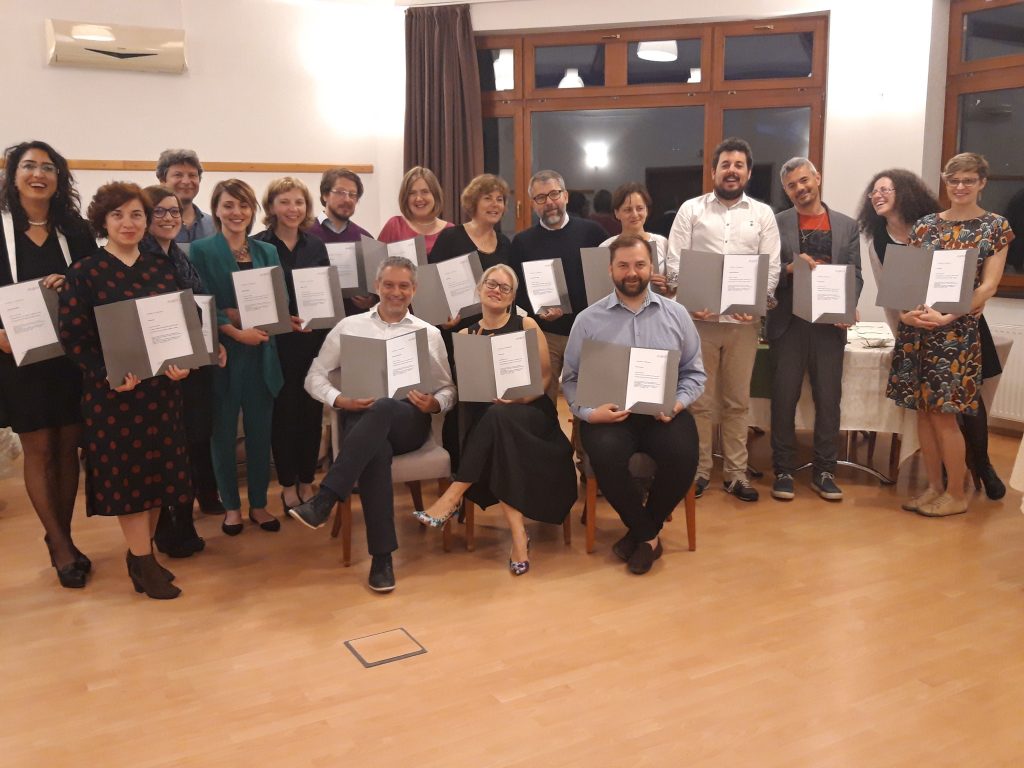
As previously done in the other modules in Berlin, London and Gdanks, it was the turn of the Brasov HOSPICE Casa Sperantei to present its complex services, education programs and advocacy achievements over the past 27 years, as an example of Best Practices model. The visit to the Hospice was much appreciated by the participants.
By the end of the course, the participants completed their personal projects aimed to bring a change in the field of palliative care in their countries or organizations.
Beyond the time spent in class activities, the venue provided by the Kolping hotel and conference center in Brasov proved again to be a good environment for socializing and strengthening the network among the participants. Brasov was a good host for pleasant walks after the intensive workdays of the leadership courses, and the afternoon spent in Bran’s Dracula castle added both excitement and relaxation to a week of learning experience.
The future leaders graduating the third EUPCA course made a commitment to keep the network active and to set up an EUPCA Alumni Platform. The purpose of this initiative is to support each other and continue the international collaboration between the present group of leaders and those of the previous two series of graduates, and possibly research on sources of European fundings for innovative projects in palliative care. This initiative was welcomed by the EUPCA Steering Committee and would also be presented and at the 16th World Congress of the European Association for Palliative Care in Berlin (23-25 May 2019).
The whole EUPCA team would like to congratulate the 2017-2019 graduates for their hard work and commitment. We wish them every success in their passionate leadership work to promote palliative care in Europe.
EUPCA Course graduates 2017-19 say thank you:
1st International Last Aid Conference in Sønderborg September 6th, 2019
A few months ago we wrote about EUPCA participant Assoc. Prof. Georg Bollig’s project “Last Aid” (read here or visit http://www.lastaid.info).
Now he invites you to the 1st Last Aid Conference in Sønderborg (Denmark) on September 6th, 2019!
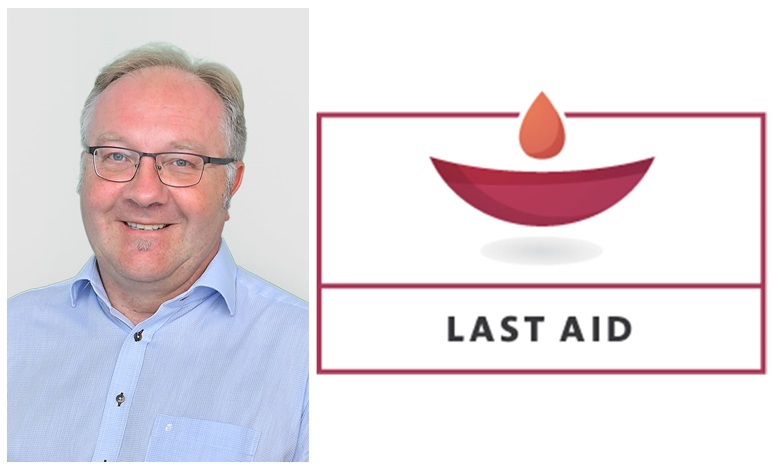
The conference in Sønderborg will highlight a combination of Last Aid courses and compassionate communities. Experiences from different countries and research on Last Aid courses will be presented:
- Last Aid – idea and development
- Last Aid and compassionate communities
- Experiences with Last Aid from Germany, Switzerland, Danmark, Lithuania, Scotland, Slovenia, Estonia, etc.
- Last Aid courses for Kids/Teens
- Talking with children about death and dying
More info:
- Congress homepage: http://www.sygehussonderjylland.dk/lastaid
- ALSIK hotel in Sønderborg https://alsik-hotel.com
- Tourist-info: https://www.visitsonderborg.com/ln-int/sonderborg/visitsonderborg-turist
Registration and congress secretariat: Kathrin Söderberg-Christensen (KSO@rsyd.dk)
EUPCA Alumni speaks at IAHPC Side Event at UN Working Group Session
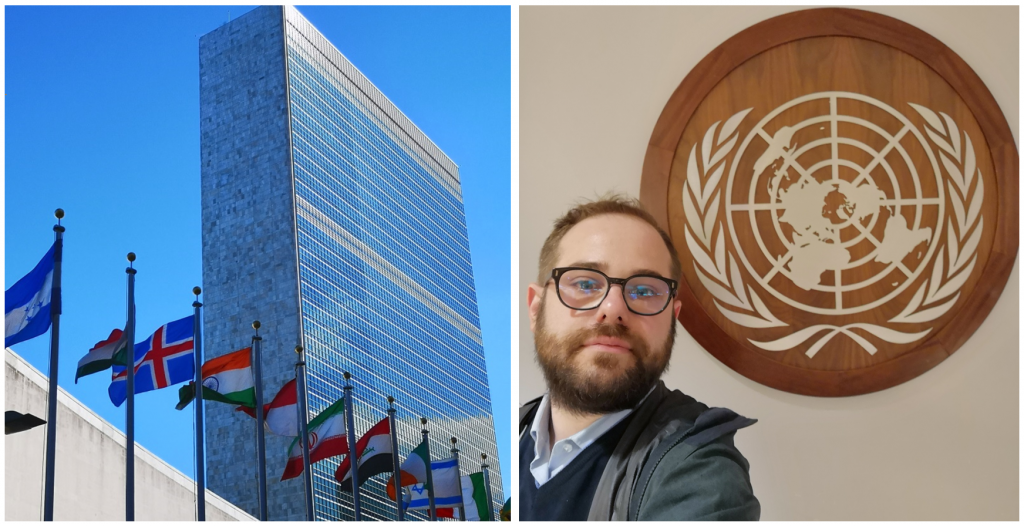 EUPCA alumni Simone Cernesi from Italy is a leading member of the Giotto Movement (Family Doctors Association). He is responsible for the Palliative Care and Geriatric Medicine special interest working group.
EUPCA alumni Simone Cernesi from Italy is a leading member of the Giotto Movement (Family Doctors Association). He is responsible for the Palliative Care and Geriatric Medicine special interest working group.
As the movement supported and disseminated the new Palliative Care IAHPC definition, they were invited to the United Nations headquarters in April, to an IAHPC-organised side event at the UN Open Ending Working Group on Aging (OEWGA10).
Simone participated as a speaker. He illustrated the national laws relating to palliative care, the role of Family Medicine and what the Giotto Movement is doing to facilitate access to palliative care for older persons in nursing homes as well as the home care setting. The message he wanted to divulge was the importance of primary care with respect for human rights for older people, as they see palliative care as a human right.
Simone explaines: „Without Primary Care, it will not be possible to reduce the inequality of access to the most vulnerable population groups. General practitioners and primary care nurses must participate in the Advocacy processes if we want to make progress in palliative care. We support the vision and the work of EAPC Primary Care Reference Group and we divulge best practice to Italian new generation of Family doctors.“
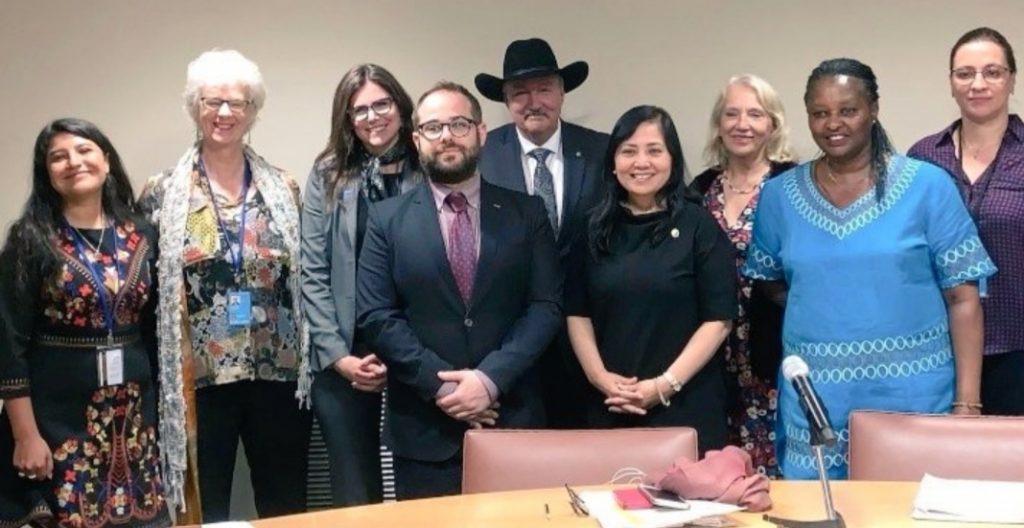
For more information:
OEWGA 10 meeting New York 2019 Official Website
Normative elements of a right to palliative care for older persons IAHPC
Movimento Giotto (Italian Family Doctors Association) Website (in Italian)
EAPC Congress 2019: Leadership Expert Dr Sally Watson with Keynote at our Pre-Conference Session
The leadership expert Dr Sally Watson will be one of the two keynote speakers at the EUPCA pre-conference session (22nd May 2019, 3.00 – 6.00 p.m., at 16th EAPC World Congress in Berlin).
Dr Watson, who works at Lancaster University, will talk about new approaches for leadership in palliative care.
Here she talks about her leadership experience:
“Leadership has been a powerful theme throughout my career. Eight years service, as a British army officer, exposed me to military styles of leadership, which were value driven, team based, and highly structured around a clear ‘chain of command’.
My transition to civilian life was a planned event in 1985 through a one year Masters in Management Development. I consciously experimented with both theory and practice to understand the shifts in leadership theory. New models of leadership were emerging that embraced cultural perspectives and so my fascination for discourse analysis began.
These new models challenged the myth of order within an organisation. The organisational metaphor of machine remains popular but it is not sophisticated enough to help leaders today. The role of emotions in the process of human personal change had a big impact on leadership theory at the time.
Organisational Development became a new field and this shaped my career as a management consultant. On completion of the Masters, I worked for 15 years, on diverse projects with leaders in a full spectrum of private and public sector organisations. My learners could be as diverse as bankers, hotel managers, manufacturing engineers, local government officials, managers, teachers, clinicians, telecommunications experts and social workers.
Leadership development ranged from residential weeks, modules, workshops and work based projects. The programme designs were highly customised to diverse needs. This work of developing leaders was inspiring and I was privileged to watch many talented women and men reach senior positions. They did not need an expert to tell them what to do. They needed support and a quality-learning environment to build their confidence.
During this period I realised that reality of leading others did not always match the explosion in literature on leadership. It occurred to me that theory was trailing behind societal and community changes. By the early 1990’s, new models of leadership appeared with greater emphasis on transformation and the interaction between leader and followers. Followership was no longer seen as a passive relationship with a single nominated leader but a critical political dynamic for a leader to understand.
In 1997, my path steered very quickly towards an academic career. I started with a Masters in Peace Studies and researched leadership discourses during the formulation of the Good Friday agreement. This study morphed into a PhD in Conflict Resolution. During both degrees, I worked full time in the Management School at Lancaster University in UK. I was promoted twice, Head of Management Development and Director of Executive Education.
For 20 years, my career developed in an academic environment. I designed leadership programmes for British, European and International clients. This work brought me into contact with Hospice UK and the International Observatory on End of Life. We created a Masters in Hospice Leadership with an alumnae network of 80 senior leaders across UK.
Organisations are now conceptualized as systems with interdependent teams and units. This organisational model requires new forms of leadership that are more collaborative and involve power sharing. This presents additional burdens on leaders who are likely to be facing external political, economic and social challenges. So now my approach is pragmatic. Leaders need to be aware of different approaches to leadership, knowledgeable and well informed but above all, have confidence in themselves and their unique style. The search for understanding about leadership starts from within.”
Read more about the pre-conference session & join the event: Pre-Conference Session (Event at Facebook)
